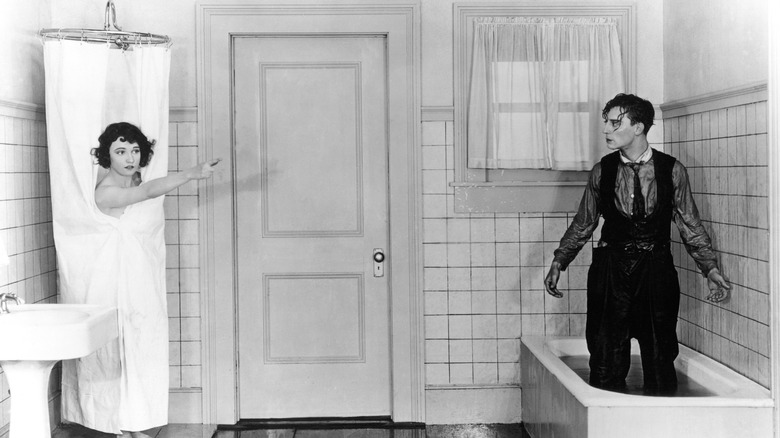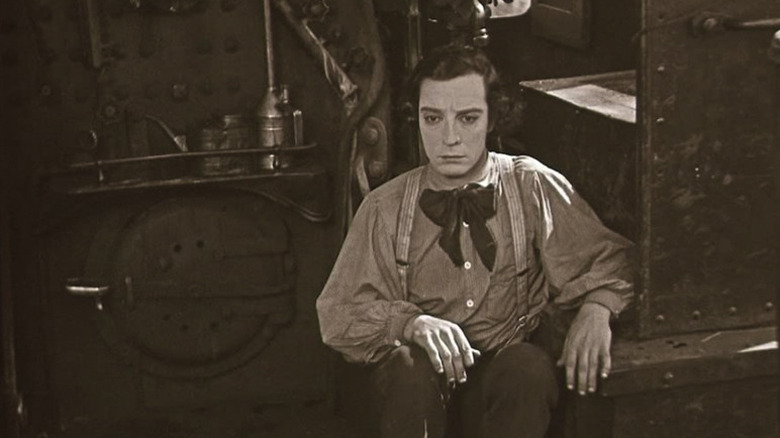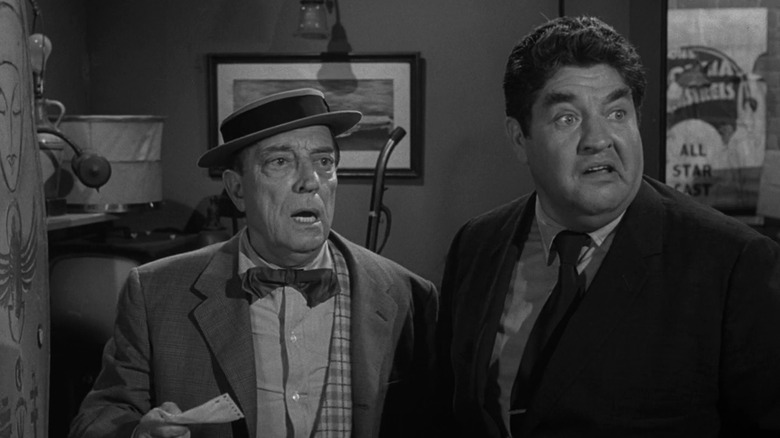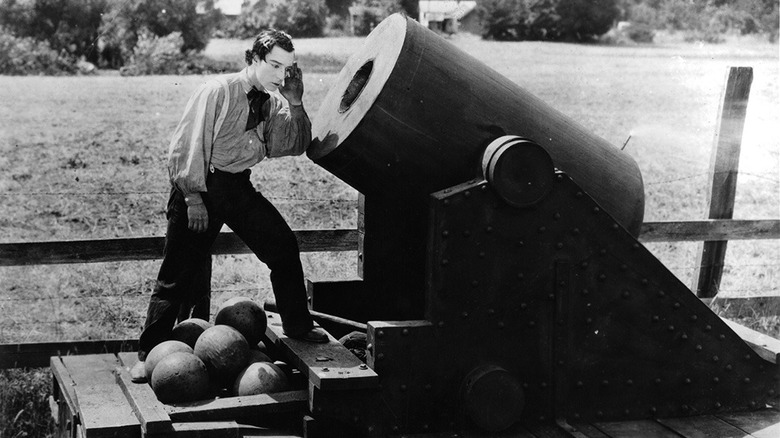TV Had A Major Limitation Even Buster Keaton Couldn't Overcome
One of the biggest comedians in silent cinema, Buster Keaton, was offered a weekly television series at a low point in his career — but, to everyone's surprise, he turned it down.
Keaton was a legend of the silver screen and a master of physical comedy, but things took a turn for the worse when silent film went the way of the dodo. Guest spots on television shows like "The Donna Reed Show" and "The Twilight Zone" presented new opportunities for Keaton to showcase his talents. He was resistant to doing a regular weekly show, but it wasn't because he was reclusive. In fact, the star had one very specific reason for turning down his own series.
Transitioning into movies
Keaton is best known for the silent films he made in the 1920s like "The General" and "Sherlock, Jr.," but he actually started out in vaudeville theater. After being featured in Fatty Arbuckle's "The Butcher Boy," Keaton began working for MGM producing two-reel comedies at a half hour run-time. He would make two of these films per year, including "One Week." (No relation to the Barenaked Ladies song.)
Moving into feature filmmaking was difficult for Keaton because shorter stories had lower stakes and could support more extreme physical comedy. "We lost all of that [absurdity] when we started making feature pictures," he explained to Studs Turkel in a 1960 interview. The gags "had to be believable or your story wouldn't hold up."
Despite his reservations, Keaton still managed to excel in full-length moviemaking. The trouble came when MGM started moving into talking films and hiring new writers that were, as he put it, "joke happy." As Keaton grumbled to the CBC, those writers "don't look for the action, they're looking for funny things to say." This trend steered the studio away from Keaton's famous comedic stylings and sparked the decline of his career. Everyone thought Old Stone Face had faded into obscurity — until he appeared in their living rooms.
TV rebooted Keaton's career
Keaton revived his career in the 1950s with a slew of television appearances. He once again had an adoring audience and was offered his own weekly series, one that would finally give him a degree of creative control that MGM had denied him in his final years at the studio. Shockingly, he turned it down.
It may seem inexplicable that Keaton would deny such a great opportunity. He clearly had no problem being in the spotlight, since he frequently appeared on other programs. Still, the comedic master found that a weekly series presented one major problem. "You can't dig up new material that fast," he revealed to Studs Turkel.
"I've refused to do a weekly show, because it's the fastest way to a sanitarium that I know of. Drive you absolutely out of your mind trying to dig up — well, I always tried to dig up new material and it's just impossible."
There were some things about this new medium that he enjoyed a great deal. "I like to do television [because] I like the live audience," he told BBC. The experience likely reminded him of his days on the vaudeville stage. Still, he admitted that "There's only one way you can get material, just hiring writers and gag men don't solve the problem. You've got to start repeating, stealing."
But Stone Face didn't want to recycle old material
The silent film stars like Keaton had always prided themselves on coming up with completely original material. "We didn't repeat gags and we didn't steal from each other, either," he explained to Turkel. Keaton refused to sacrifice his creative integrity again after being pushed around by MGM in the 1930s. He resolved to only do guest spots from then on, enjoying the thrill of a live audience and soaking up their applause.
Keaton did actually do a few brief shows entitled "The Buster Keaton Show" and "Life with Buster Keaton" in the early 1950s. But these shows focused on re-enacting some of the star's most famous gags. In this way, he was able to circumvent his major issue with television — the gags weren't original, but they didn't claim to be, either. The shows weren't on the air for long, and Keaton's thoughts on television suggest that he may have pulled the plug himself. It's a shame that his fans didn't get to see more of his comedic stylings on television, but then again, Buster probably knows best.
Even though Keaton thinks all television writers will end up stealing at some point in their careers, he is sympathetic to their plight. "They have to [steal]," he conceded. So, if you're ever writing for a sitcom and feel the need to steal one of Buster Keaton's gags, don't feel guilty. He understands.



